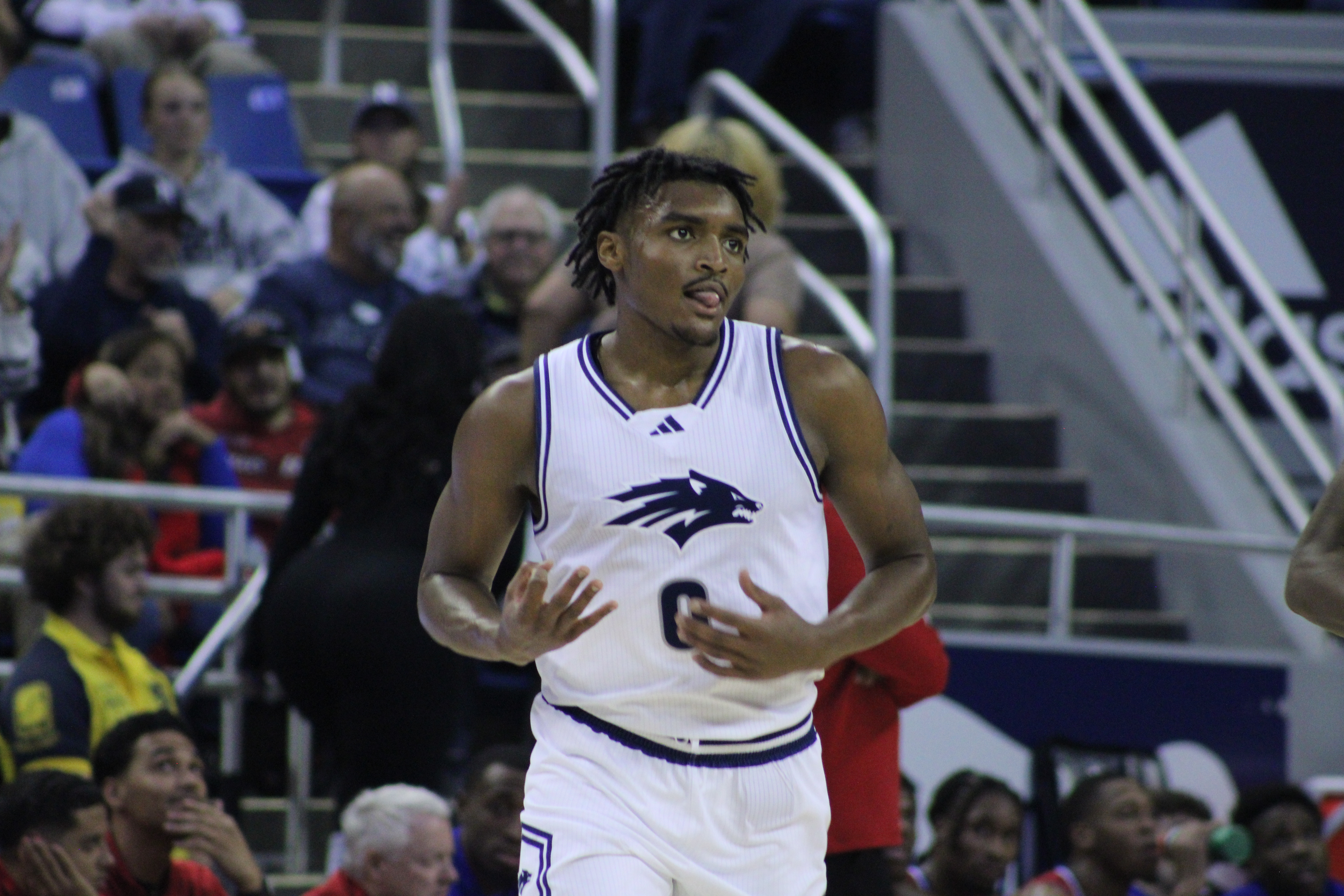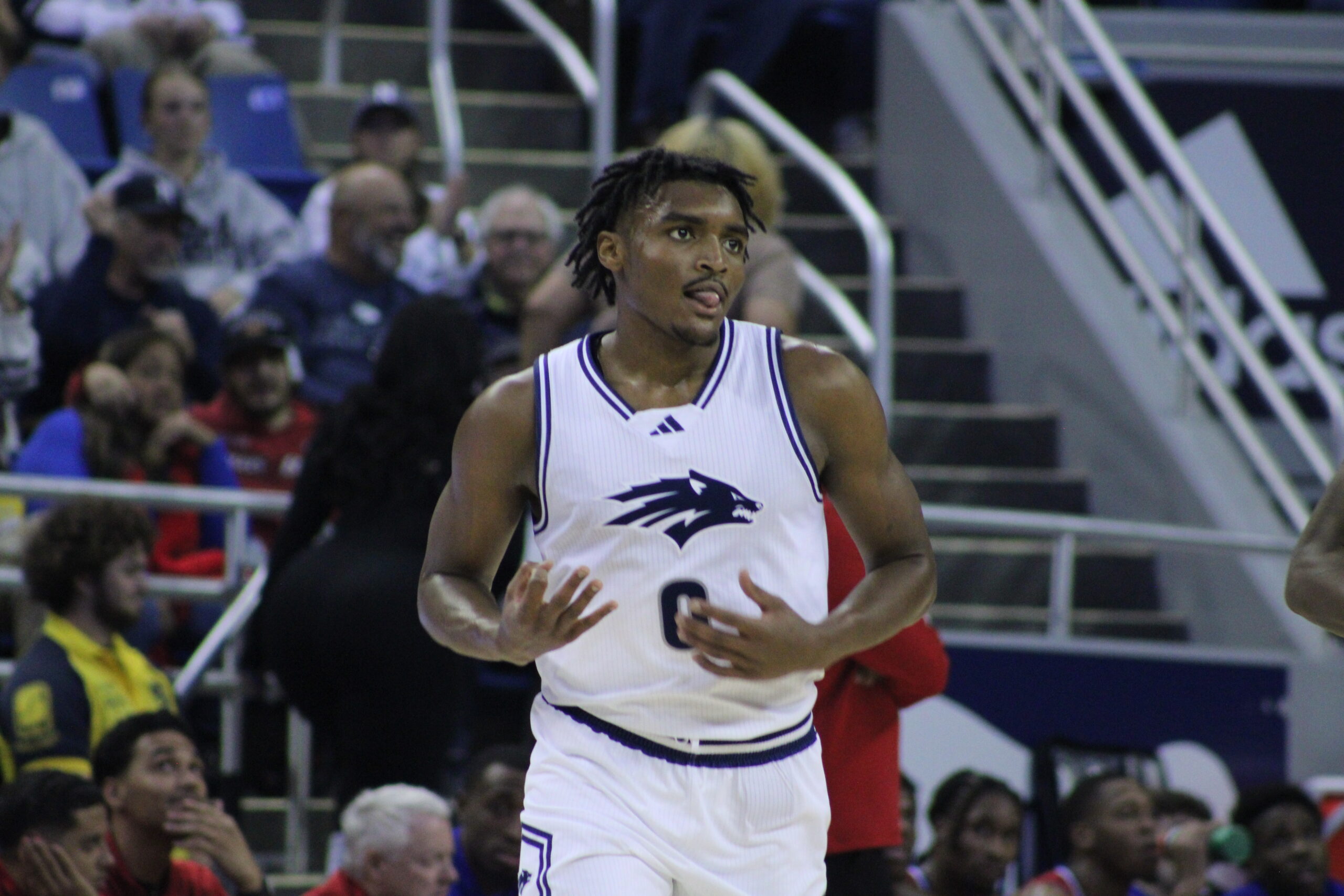Nevada’s Press Defense Marks a New Era in College Basketball, Challenging Traditional Norms and Sparking Controversy Over Coaching Styles and Player Development
As the 2025-26 college basketball season unfolds, Nevada’s Wolf Pack has made a bold statement with their emphatic 77-50 victory over Louisiana Tech. This game not only showcased the team’s potential but also highlighted a significant shift in coaching philosophy under head coach Steve Alford. With ten new players on the roster, the Wolf Pack is in the early stages of defining their identity, a process that Alford acknowledges is still underway. However, the foundations of a formidable team are already visible, particularly through their aggressive defensive strategy.
Alford’s comments post-game reflect a sense of optimism and a willingness to adapt. “We don’t have an identity yet,” he stated, emphasizing the importance of building good habits, particularly on the defensive end. The game against Louisiana Tech served as a testing ground for these new strategies, particularly the implementation of a press defense that has not been a hallmark of Alford’s coaching career. “If you look at my 35-year coaching career, the 34 years prior, you could probably add up the number of times I’ve pressed, and tonight was more in one game,” he remarked, indicating a significant departure from traditional coaching methods.
The Wolf Pack’s performance was characterized by a fast-paced offense and a relentless defense that stifled Louisiana Tech’s scoring opportunities. Chuck Bailey, a returning player, led the charge with a stellar 24-point performance, demonstrating the hard work he has put in since last season. His ability to score from both inside and beyond the arc was instrumental in establishing Nevada’s early lead, which they maintained throughout the game. Bailey’s shooting statistics—7-11 from the field and 5-7 from three-point range—underscore his role as a key player in this new era for Nevada basketball.
The scoring summary reveals a stark contrast between the two teams. Nevada’s offense, while not yet fully polished, managed to shoot 45 percent from the field, a marked improvement from previous seasons. In contrast, Louisiana Tech struggled significantly, shooting only 36 percent overall and failing to make a single three-pointer in the first half. The Bulldogs’ offensive woes were compounded by a scoring drought that lasted over seven minutes, showcasing Nevada’s defensive prowess. The Wolf Pack’s ability to force turnovers and secure rebounds—45 in total—was critical in limiting Louisiana Tech’s scoring opportunities.
Defensively, Nevada’s press strategy proved effective, particularly against a Louisiana Tech team that struggled to adapt. Senior guard Tayshawn Comer expressed enthusiasm for the new approach, highlighting its potential advantages against teams lacking strong ball-handlers. The press defense not only disrupts the opposing team’s rhythm but also creates opportunities for fast breaks, a style that aligns with the current trends in college basketball where speed and agility often dictate the game’s outcome.
This shift in strategy raises questions about the evolving nature of coaching in college basketball. Traditionally, many coaches have favored a more conservative approach, focusing on half-court sets and structured plays. However, as the game continues to evolve, teams are increasingly adopting more dynamic and aggressive styles of play. Nevada’s embrace of press defense could signal a broader trend in college basketball, where adaptability and innovation become essential for success.
The implications of this shift extend beyond just game strategy. They touch on player development, recruitment, and the overall culture within college basketball programs. As teams like Nevada experiment with new tactics, they may attract players who thrive in high-pressure, fast-paced environments. This could lead to a new generation of athletes who are not only skilled in traditional basketball fundamentals but also adept at navigating the complexities of modern gameplay.
Looking ahead, Nevada’s next challenge will be against Pacific, a team they have historically performed well against. The Wolf Pack will aim to build on their momentum from the Louisiana Tech game, further solidifying their identity and refining their strategies. The upcoming matchup will provide another opportunity to assess the effectiveness of their press defense and the overall cohesion of the team as they continue to integrate new players into the system.
As the season progresses, the basketball community will be watching closely to see how Nevada’s innovative approach unfolds. Will their aggressive defensive tactics redefine their season and set a new standard in college basketball? Or will traditional strategies prevail as teams adapt to counteract such bold moves? The answers to these questions may shape the future of college basketball, making this season one of the most intriguing yet.


‘Tis the season for college hoops. The 2025-26 season for Nevada kicked off at home against Louisiana Tech with a dominant 77-50 win. With 10 new players, the team’s leaders and identity will continue to be established as the season carries on.
“We don’t have an identity yet,” head coach Steve Alford said after the game. “It’s early, but we’re creating some really good habits defensively that I like with this team.”
But there were a lot of arrows in the direction this team will go. It’s fast, it plays hard defense, and it’s deep with talented depth pieces. Led by a 24-point night by Chuck Bailey, one of the few returning Pack players, Nevada was able to flash its potential and start the season 1-0.
Scoring Summary
1st half
Louisiana Tech 18 – Nevada 34
2nd half
Louisiana Tech 32 – Nevada 43
Final: Louisiana Tech 50, Nevada 77
Offense
Nevada has plenty of new faces this year, but a familiar one in Chuck Bailey got the Pack started with a free throw, followed by a bucket in the paint. He also scored Nevada’s first three of the game en route to a 12-1 run over four and a half minutes.
Both offenses went quiet near the end of the first half, combining for over eight minutes of no points. That broke at the 5:29 mark when sophomore forward Elijah Price rushed in the paint for two off a rebound.
Nevada’s offense shot 13-31 from the field and 3-11 from three in the first half. Bailey led the half with nine points on 3-7 shooting. The pace of play was noticeably faster after being one of the slowest teams in the nation last year.
Bailey finished the night as Nevada’s lead scorer with a dominant 24 points, four rebounds and two assists on 7-11 shooting. He also made 5-7 shots from deep.
“He [Bailey] has put in an enormous amount of work since our season ended at the Mountain West tournament last year,” Alford said. “What he’s done over the last six months of his work has been phenomenal. I don’t know if anybody’s put in any more work than Chuck has, and he’s ready for this.”
As a team, Nevada shot 25-56 (45 percent) from the field and 6-20 (30 percent) from beyond the arc. This team isn’t going to be a dominant three-point shooting team, so the early numbers shouldn’t be alarming.
Defense
Louisiana Tech got three on the board early in the first half but went into a scoring drought lasting over three minutes. Once the Bulldogs broke it, they fell right back into the non-scoring pit. Nevada’s defense held them scoreless for over seven minutes until the 2:04 mark of the first half.
The first half was overall quiet for the Bulldogs, who fell behind 34-18. They shot 29 percent from the field and missed all 12 three-point attempts. Forward Avery Thomas was their lead scorer in the first half with four points. Louisiana Tech held the lead for only 19 seconds of this game.
Louisiana Tech wasn’t much of a three-point threat either, ending the game going 3-22 and didn’t make a deep shot in the first half. The Bulldogs found a bit more luck from deep in the second half, shooting 3-9 in that department. Overall, Louisiana Tech shot 18-50 from the field.
The Bulldogs’ lead scorer was a three-way tie between AJ Bates, Kylan Howze and DJ Dudley with nine points.
Nevada rolled out a pretty heavy press defense in this one, something that Alford hasn’t done much in his career.
“If you look at my 35-year coaching career, the 34 years prior, you could probably add up the number of times I’ve pressed, and tonight was more in one game. So we’ve just taken on a different identity, and it’s fun.”
Senior guard Tayshawn Comer added his experience with press defense and how much it’ll add to Nevada’s growing identity.
“I love it. I mean, I’ve been pressing since my freshman year, so I’m kind of used to it, but I’m kind of used to picking up anyway, and we all picked up, and I think that’d be a good advantage for us against other teams, and especially teams that don’t really have a point guard. So I think that was a huge advantage today.”
Nevada’s defense used 45 rebounds and 13 turnovers to limit Louisiana Tech to a 27-point game. Personal fouls gave the Bulldogs some slight pep in their step toward the end, as a combined 38 fouls were called in this one (21 against LA Tech, 17 against Nevada).
What’s Next
Nevada will stay home to host Pacific on Saturday, Nov. 8. The Wolf Pack have a six-game winning streak against the Tigers and won 88-39 in their most recent matchup two years ago, also at Lawlor.
Tip-off is scheduled for 7:00 p.m. PST.

